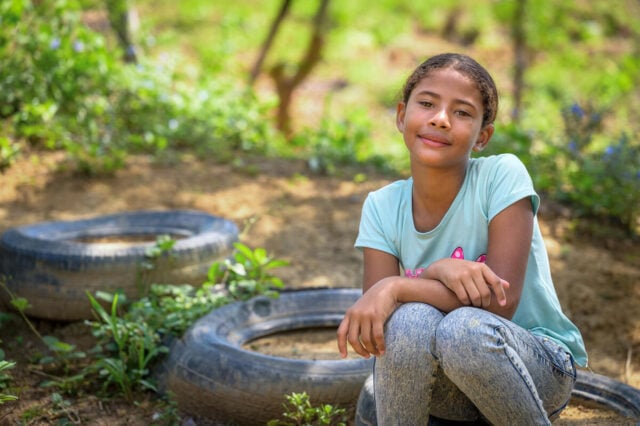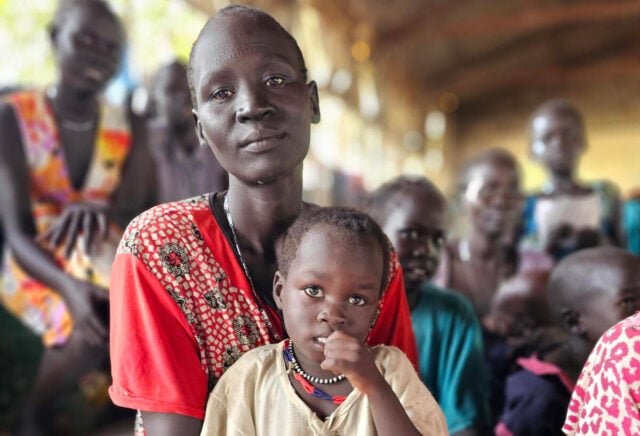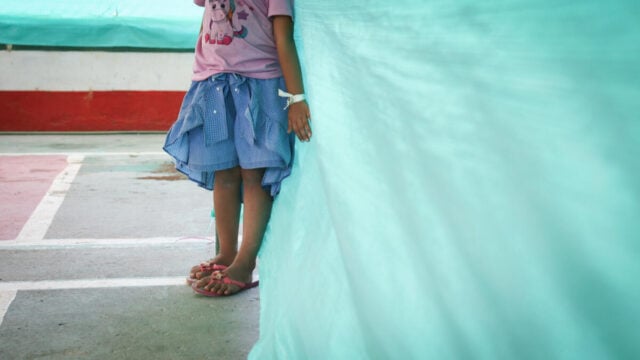In the early morning darkness Friday, Dec. 16, Shihab (name changed to protect identity) made his way through the chaos of eastern Aleppo, Syria.
Amid the confusing scene, he waited hours to cram onto one of the overcrowded buses leaving for safety in Idlib, Syria, almost an hour away to the southwest. They were all trying to get out of Aleppo, while fighting had reached a lull.
World Vision’s Kinan Diab, who works in the Turkey/northern Syria region, interviewed Shihab as he arrived in Idlib Friday morning and sought refuge at a family member’s home.
Here’s Shihab’s personal and shocking account of fleeing the war-torn city:
When did you manage to get out and how?
The buses started picking people up around 12 a.m. It was a chaos — the number of people was way too much for the buses. I didn’t manage to get into one until 5:30 a.m.
I can’t describe how it was. There are no words to describe how we felt. There were a lot of families and children. No one was organizing anything. People were just keen to get out. A lot of people got pushed around, sometimes beaten.
People came with their luggage, whatever they could bring with them. But there was no space. People had to leave their stuff lying in the road and just get on the bus. Later on in the night, it became too cold for us. To warm up, people started fires with their luggage, keeping only two sets of clothing with them. I was one of the people who burned their belongings just to feel a bit warm.
Are you in a safe area now?
I’m in Idlib governorate, where it’s relatively safe. But as long as these jets are flying around, no one is safe.
How was it like living in the besieged area?
It is so hard to describe. We are humiliated because we feel that we were forced to leave our homes. But we had no other choice. Some people didn’t have bread for 6 months. And the bread we had was not actually real bread. We had to grind beans to make it into a flour-like substance to bake — even that was super expensive. Everything was either not available or super expensive. The NGOs’ warehouses were either empty or impacted by a bombing. The bazaars (markets) were targeted directly as well, so we couldn’t even go there.
We didn’t have water, and there was no electricity to power the pumps. A lot of people had cases of acute diarrhea. They had to stay in makeshift health clinics for two days and use liquid paracetamol (a mild painkiller) and other serums to get better.
Were baby needs available?
We had baby milk (formula) at the beginning but when the NGOs’ warehouses were impacted in a bombing, the milk was destroyed. Diapers were rare to find and expensive, and there was a monopoly for items that were hard to find.
Did people have access to health care facilities?
All hospitals were targeted in bombings. I went to the hospital, “Al-Qudus”, and it smelled like a slaughterhouse because of all the blood. The floor was literally, and I’m not exaggerating, it was literally covered with blood — dry blood and new blood. The staff was too busy dealing with new casualties every minute. Patients were on the floor, lining the hallways and corridors. Doctors were operating on two patients at the same time in operation rooms, sometimes more. I saw an operation conducted in a hallway. It was too crowded. People were on the floor, people looking for their family members.
Where are people staying now and what are your needs?
Some of them are staying with relatives now. There are some people who don’t have any place to go to. We need shelter, clothing, blankets and food. The basic stuff, you know. You can say that we need everything to start a new home. Every single person from Aleppo is in a psychological shock. We felt like this even with just the bombings. Now, this situation has only made it worse.



